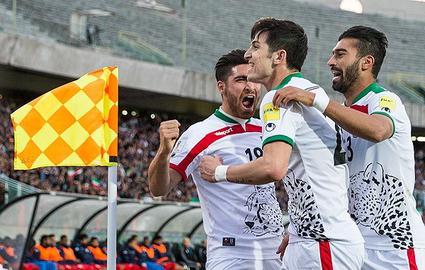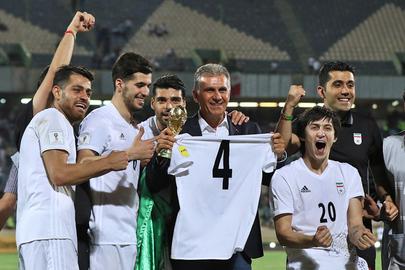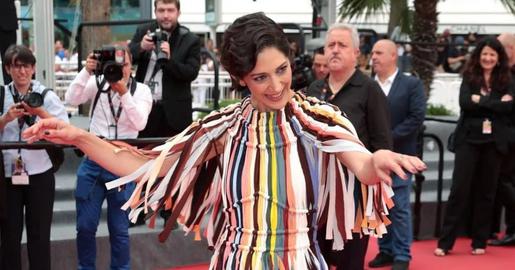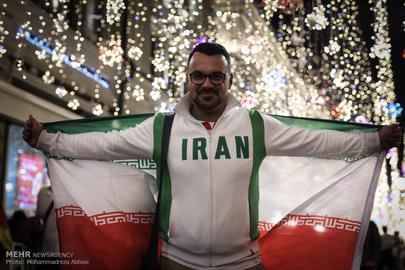“Iranian people are behind you and you are on the field for the Iranian people. I will be on the side of the pitch and will give my life for you all.”
This is what Carlos Queiroz, the head coach of Iran’s National Football Team, said four years ago, when his team was getting ready to confront Argentina in the 2014 FIFA World Cup. Team members say when Queiroz told them this, they all got goosebumps. Iran lost 1-0 — but that feeling of elation has remained strong in their memories.
Nobody should be surprised if, today or tomorrow, once again Queiroz comes up with similar uplifting pronouncements to inspire and motivate his team. On Friday, June 15, Iran and Morocco will fight for their place in this World Cup. It is estimated that more than 1.1 billion people will be watching the game on TV. For one day at least, the world will hear something about Iran other than stories about sanctions, the nuclear deal, earthquakes and tensions in the Middle East.
A Game of Minds
“Inside me, I have a savage and ferocious beast who yearns for victory,” Queiroz told reporters on Thursday, June 14 at the hotel where Iran’s national team is currently staying. It was a repeat of what he told reporters four years ago in Brazil. His savage love for victory has always been shaped by intelligence and his penchant for catching people off-guard. On the same day, he said: “Unfortunately, I have to say that Morocco knows nothing about my secrets for victory” — a sentiment that gives a palpable hope to fans of the Iranian team. He’s an expert in psychological warfare and, of course, coaches like Hervé Renard, the French coach of Morocco’s National Team, know this about him.
“If we agree that Queiroz is an intelligent man, then I must throw away all the notes I have taken about Iran’s preparatory games,” Renard was quoted as saying. This is exactly the psychological warfare that Queiroz wants to bring to Hervé Renard, who has a lower place than him in FIFA’s ranking of international coaches.
It is likely that fans and observers will witness two similar mindsets in the upcoming match between Iran and Morocco. Both Renard and Queiroz put the protection of goals ahead of scoring them. In the history of Iranian football, Queiroz has the best record when it comes to defensive lines. And Renard got Morocco to the 2018 World Cup with one of the best defensive lines in Africa. So will they follow the same playbook in the forthcoming game?
The Field of Stars
So, who will be the stars on the pitch? Or — a better question — which players will achieve stardom because of their coaches? For Iran, it is logical to expect the defenders and the goalkeeper to become stars, in the same way that, in the 2014 World Cup in Brazil, midfielder Mehrdad Pouladi shined and was declared to be the best player in Iran’s national team.
Alireza Biranvand, one of Iran’s goalkeepers, is a strange case of Dr. Jekyll and Mr. Hyde. When he’s on form, even the best strikers can't get around him. But, on his bad days, he is a nightmare for the Iranian team. Most likely it will be Biranvand who will be standing between the goalposts in the upcoming game, and there is no doubt that he is able to deal with balls kicked from sidelines. The big question, however, is how he will deal with kicks from behind the 17-yard line.
On the defensive line, the bets are on Morteza Pouraliganji, who is undeniably the best midfield defender in the Iranian team. Pouraliganji deserved better than to play for Qatar’s upper league. However, he has to deal with Noureddine Amrabat, a winger for England’s Watford FC, and Aziz Bouhaddouz, a forward in Germany’s FC St Pauli. Yet Pouraliganji is probably well-acquainted with the law that says “neither a player nor a ball shall pass you.”
The absence of the midfielder Saeed Ezatolahi is a cause for worry. Queiroz will probably replace him with Omid Ebrahimi, but it could be Masoud Shojaei who will have to carry the heaviest responsibility for the midfield. If so, it will be a historic occasion for Shojaei. If he plays in the game against Morocco, Shojaei will become the first Iranian who has played in three FIFA World Cups. He will also play as captain of the Iranian team, and nobody deserves the captain’s armband more than he does.
Among Morocco’s midfield lineup, it’s important to pay special attention to stars like Karim El Ahmadi from the Netherlands’ Feyenoord Rotterdam football team, Hakim Ziyech and Romain Saïss, both of whom play for England’s Wolverhampton Wanderers (“the Wolves”). Last season, Hakim Ziyech was one the best scorers in Holland.
But Iran’s offensive line shines with even more stars. Alireza Jahanbakhsh plays for the Dutch team Alkmaar and is the top scorer in the Netherlands. Sardar Azmoun, who plays for the Russian team Rubin Kazan, has scored a dazzling 23 goals in 33 games for Iran’s National Football team. These two, and Mehdi Taremi, who plays for Qatar’s Al-Gharafa, are the three forming the spearhead of the Iranian team. Prior to this week, Iran’s Football Federation announced that Taremi had been injured in a friendly game against Turkey, but he seems to have recovered and — who knows? — maybe creating doubts about Taremi’s ability to play in the tournament was part of Iran’s psychological warfare against Morocco. Even if Taremi does not get to play in the first game, Queiroz has enough powerful pawns, including Saman Ghoddos, to deploy on the chessboard.
To be sure, Iran’s offensive line is impressive and sharp. But the question remains: Does Queiroz wants to make stars of Iran’s offensive players? Or will it be the defenders and halfbacks that he turns into supermen? The answer will be clear 15 minutes after the start of the game with Morocco— because it is usually after 15 minutes that Queiroz’s team shows its hand.
Iranian attackers must cross the defence line of some of Africa’s best players: Medhi Benatia, who plays for the Italian club Juventus, Achraf Hakimi, the 19-year-old star of Real Madrid, and Nabil Dirar, who used to play for Monaco, need no introductions.
That Coveted 30 Percent
On Friday, June 15 at 4m GMT, St. Petersburg’s Krestovsky Stadium will host the Iran-Morocco game. FIFA has announced that all the 68,134 seats have sold out and that 30 percent of the tickets have been sold to Russian football fans. Before departing for St. Petersburg, Queiroz addressed this 30 percent. He said, “if you want to enjoy a gorgeous football game, then on Friday, cheer Iran.” Of course, Queiroz has no idea what team the Russians will cheer for, but he sure tried to win them over for his team.
The Russians, however, are no stranger to Iranian footballers. Milad Mohammadi and Sardar Azmoun have both played for the Russian league, and this by itself might convince some Russians to cheer for Iran. If only Saeed Ezatolahi, who also plays in the Russian league, was playing for Iran in this game too.
The Man to Watch
One individual in the Iran-Morocco game will certainly receive special attention: The well-known Turkish referee Cüneyt Çakır — whom the pro-Barcelona sports daily Mundo Deportivo called “the Angel of Madrid.” The football community will never forget his two controversial judgements in UEFA Champions League games. In the first instance, his decision against Manchester United allowed Real Madrid to advance in the league. And the second controversial decision enabled Real Madrid to play in the league’s final.
Çakır is 41 and Turkey’s best-known referee. He has a degree in economics and now, as well as being a referee, also works as an insurance agent. From the age of 10 he played for the Turkish team Kartal S.K. until he was 17. “Now I understand why deserving teams in Turkey do not get to become champions,” the German coach Jupp Heynckes said about Çakır. “Strange things must be happening there.”
The Political Front
According to the Moroccan news agency Hespress, in a phone call to the head coach of the Moroccan National Football Team, King Mohammed VI of Morocco assured Hervé Renard and Medhi Benatia, its captain, of his support, and that he would be with them during the game against Iran.
Politics is a crucial component of the World Cup, and its importance goes further than just a 90-minute football game. On May 1, Morocco severed ties with Iran, accusing both Iran and the Lebanese Hezbollah of backing the Polisario Front, a guerrilla movement fighting for the independence of Western Sahar.
And again, it must be acknowledged: The World Cup is not only about football.
More about Iran at the 2018 World Cup:
Decoding Iran’s Politics: Football and State Interference, June 11, 2018
Iranian Football and US Sanctions, June 13, 2018
One Day to go Until the World Cup, June 12, 2018
Get to Know Iran’s 2018 World Cup Team, June 7, 2018
Football Star Azizi Discusses the 2018 World Cup, May 31, 2018
Iran Is Going to the World Cup!, June13, 2017
visit the accountability section
In this section of Iran Wire, you can contact the officials and launch your campaign for various problems





















comments